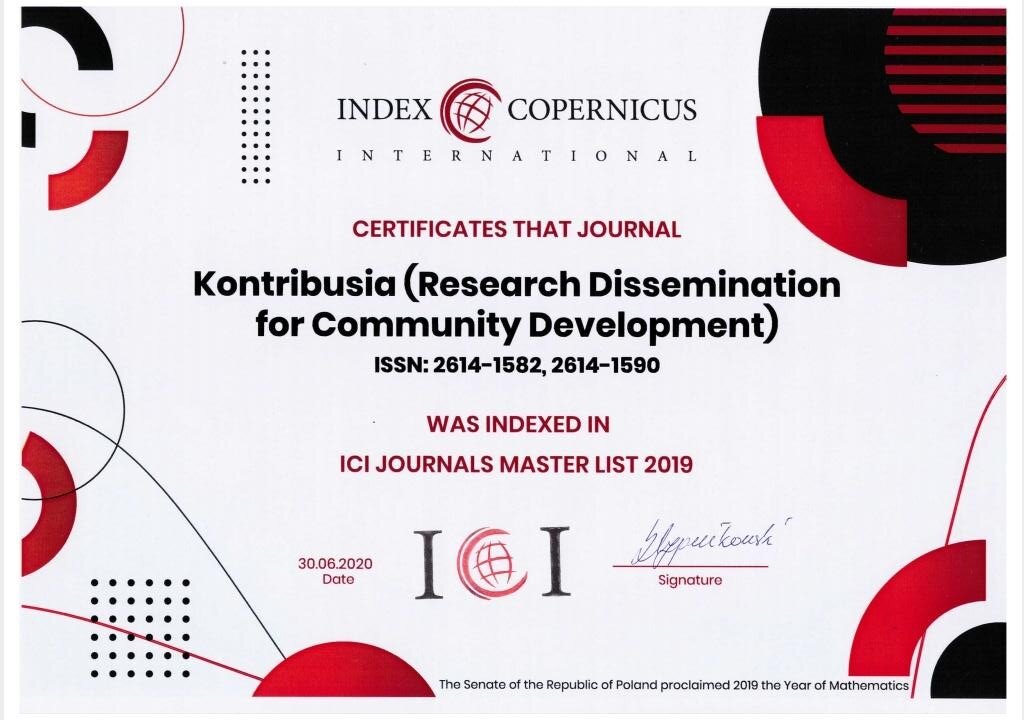Creating Happiness Among College Students: Psychoeducation Enhanching Civil Culture in Social Media
DOI:
https://doi.org/10.30587/kontribusia.v7i1.6288Keywords:
Happiness, Psychoeducation, Civil Culture, Social MediaAbstract
Adolescents were excessively exposed to social media use especially during the covid-19 pandemic period. Social media helped individuals of the age group to express emotions through social media, ranging from writing statuses, commenting, to engaging in mutual derogatory conversations. Therefore, teenagers need to acquire information and be trained in displaying polite behavior on social media. This aligns with the spiral effect theory, which explains that when someone experiences impoliteness from others, they tend to reciprocate with impoliteness towards others as well. This impolite behavior would be an antecedent of low happiness in the millennial generation.This community service aims to provide adolescents with skills for polite behaviour on social media. The method used is online psychoeducation, with data analysis using paired-sample t-tests to measure changes before and after the education is given. The participants consist of 175 teenagers from Indonesia and Malaysia. The results of the community service indicate that psychoeducation enhances effective happiness and can reduce the culture of impoliteness among adolescents on social media. As a result, adoloscents can implement the knowledge and skills provided to become wiser in using social media.









